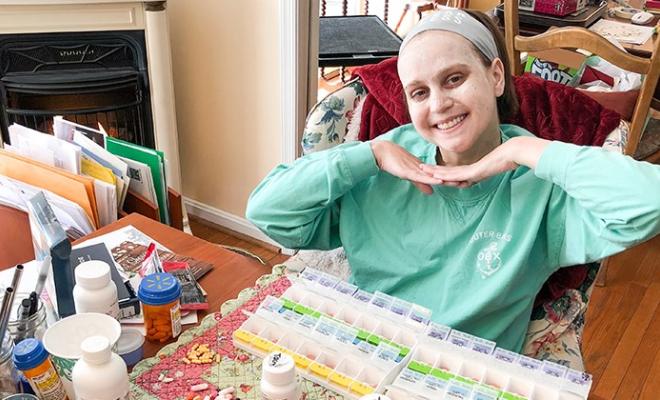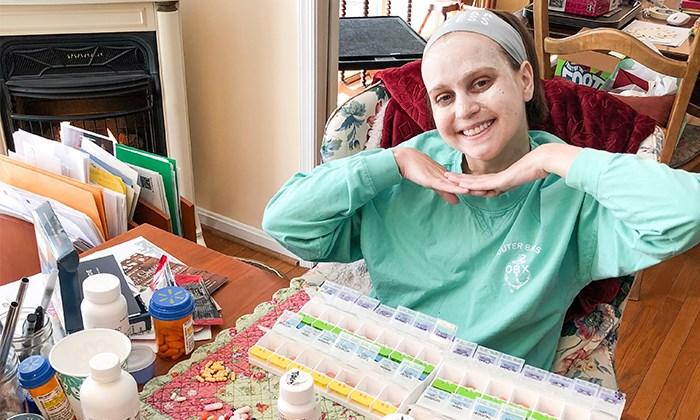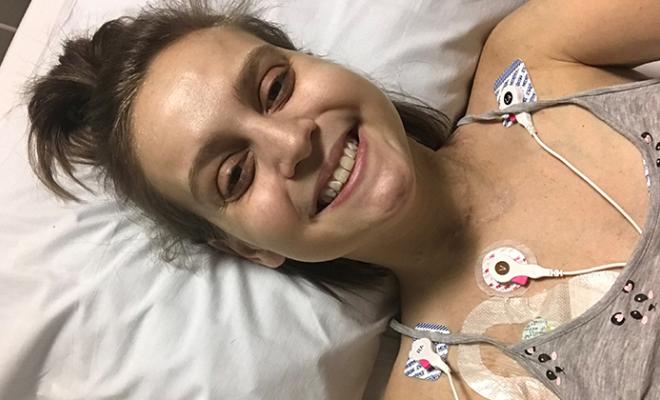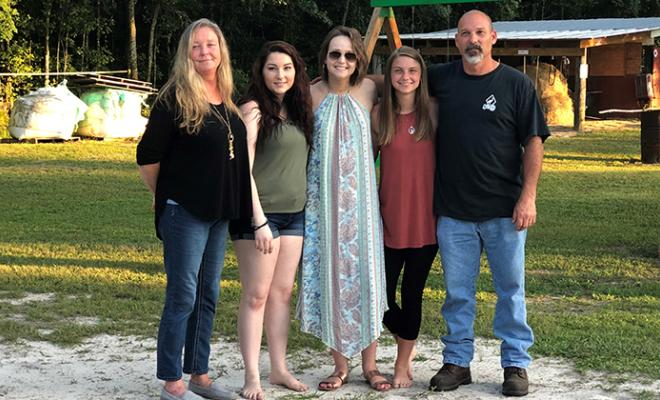A huge part of life involves gaining independence and relying less on our parent(s). Our families teach us what we need to know to eventually be able to support ourselves, such as how to take care of a car, how to cook, or which dishes should be hand-washed and which should be put in the dishwasher. With cystic fibrosis, growing up becomes even more complicated. How to refill medications, how to talk to insurance companies, and how to schedule and keep up with doctor appointments becomes a part of the process.
Our survival actually depends on knowing how to do these things properly. Having medications and health insurance isn't an option. It's a must.
As I have learned how to independently manage my life with CF, I've come up with a few tips to help with these complicated, but necessary, tasks.
- Keep your medications in a container or use some system that works for you. That way, you can easily see how much medicine you have left.
As a child, my mom kept an inventory of my medications, filled new prescriptions, and called for refills. As I reached high school, my mom and I did all of this together, allowing me to gain a better understanding of the process. My mom slowly slipped away from the process and it became my responsibility.
I found it helpful to fill my meds in a sorting box used for craft beads -- each space with a different set of pills. This method allows me to clearly see which medications I am taking at the time and which I will be running out of soon. - Request your refill 1-2 weeks before you run out of medications, and try to take advantage of new technologies that can help you order your meds.
Not running out of medications is crucial. Traditionally, this requires calling the pharmacy 1-2 weeks before I actually run out to give them enough time to process my request (to avoid panic on my end or rush ordering on their end). That system doesn't work too well for me, so I use a mail-order pharmacy for all my long-term medications. I also go to one local pharmacy that knows me.
The mail-order pharmacy I use has an app that makes it extremely easy to order medications. I just log in with my fingerprint on my smartphone and with the tap of a button, my medication request is placed and shipped shortly thereafter.
Another thing to be careful of is running out of refills. I notice that it adds, at minimum, a few days if the pharmacy has to reach out to the provider to get the new prescription. This is why it's important to always be on top of the number of refills available. As soon as I notice I have zero refills left, I contact my doctor. I recommend following through as soon as possible to avoid anxiety over potential delays. - Be kind but direct with insurance companies. Let them know you mean business but be appreciative of all they do to keep you well.
We all have a love-hate relationship with insurance companies. When we have to contact insurance regarding billing or to request information, it's usually because we are upset about something and need answers. Working with insurance companies can be frustrating, but if we think about all of the amazing medications they provide for us, it puts things in a different perspective.
Over the years, I listened to my mom talk to our insurance company on the phone. She had a very specific tone … kind but direct. They needed to know that she meant business; but by being kind, the process worked better. When I went on my first insurance plan as an adult, my mom sat beside me as I spoke with them. If she heard the frustration in my voice, she would remind me to remain calm, ask the right questions, and communicate effectively. After a few calls with my mom by my side, I could handle it on my own. This lesson was extremely helpful when I have had to contact insurance over the years. - Schedule your follow-up appointments at your current appointment and set reminders in your phone.
Lastly, with cystic fibrosis, setting up appointments with many different types of doctors is crucial. When you have so much going on, it's easy to fall months behind scheduling a six-month follow-up. To help avoid this, I recommend scheduling your next appointment while you're still at the doctor's office. Thinking ahead to three or even six months down the road seems so far away, but it's always easier to reschedule than to have no appointment at all.
Once you schedule an appointment, immediately put the reminder in your phone or paper calendar. In my phone, I set a reminder for one month before, two weeks before, one day, and two hours before. This way, I won't forget about the appointment and I'll have enough time to reschedule if I need to. Find a method that works and stick with it.
With these tips, you should be better suited to handle medication refills, insurance companies, and doctor appointments all on your own. No parents necessary.






